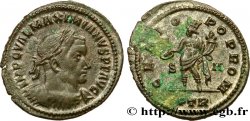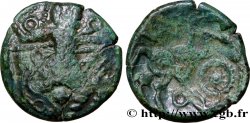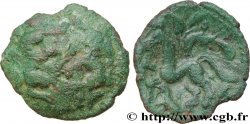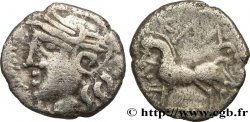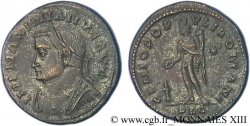v13_1073 - GALERIUS Follis ou nummus
MONNAIES 13 (2001)
Starting price : 121.96 €
Estimate : 243.92 €
Realised price : 125.77 €
Number of bids : 2
Maximum bid : 125.77 €
Starting price : 121.96 €
Estimate : 243.92 €
Realised price : 125.77 €
Number of bids : 2
Maximum bid : 125.77 €
Type : Follis ou nummus
Date: 305-306
Mint name / Town : Lyonnaise, Lyon
Metal : copper
Diameter : 28 mm
Orientation dies : 6 h.
Weight : 11,43 g.
Rarity : R1
Emission: 1re
Coments on the condition:
Très beau portrait inhabituel avec une patine marron foncé et des reflets gris métalliques. Revers de beau style
Catalogue references :
Predigree :
Cet exemplaire vient du stock de S. Boutin et se trouve illustré dans l’ouvrage du Dr. P. Bastien consacré au monnayage lyonnais, (n° 375e, pl. 39)
Obverse
Obverse legend : IMP MAXIMIANVS AVG.
Obverse description : Buste lauré et cuirassé de Galère auguste à gauche, vu de trois quarts en avant (B*1).
Obverse translation : “Imperator Maximianus Augustus”, (L’empereur Maximien auguste).
Reverse
Reverse legend : GENIO POP-VLI ROMANI/ -|*// PLG.
Reverse description : Genius (le Génie) debout de face, coiffé du modius, nu, drapé autour des hanches, tenant une patère de la main droite et une corne d'abondance de la main gauche.
Reverse translation : "Genio Populi Romani" (Au Génie du Peuple romain).
Commentary
Poids lourd.








 Report a mistake
Report a mistake Print the page
Print the page Share my selection
Share my selection Ask a question
Ask a question Consign / sell
Consign / sell
 Full data
Full data


